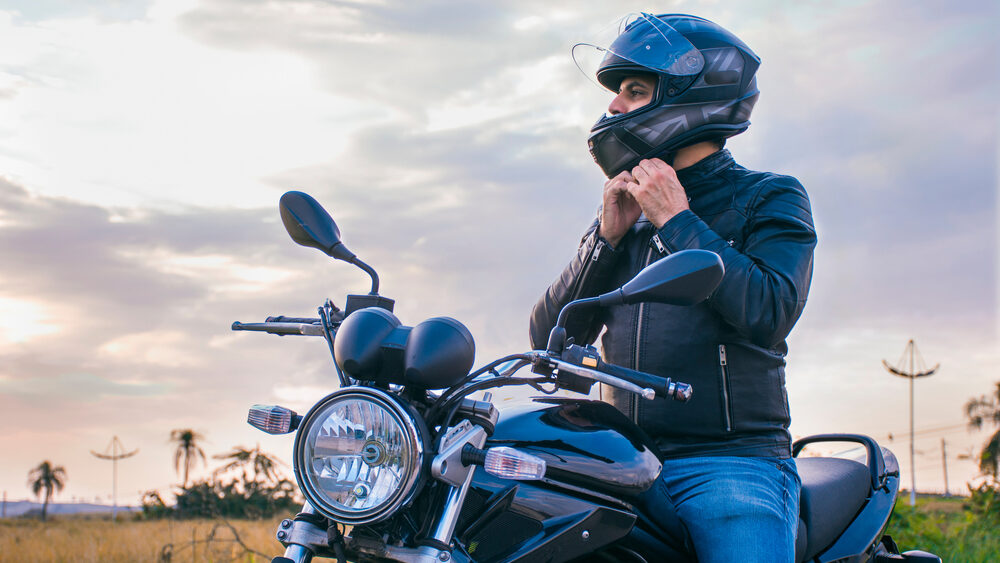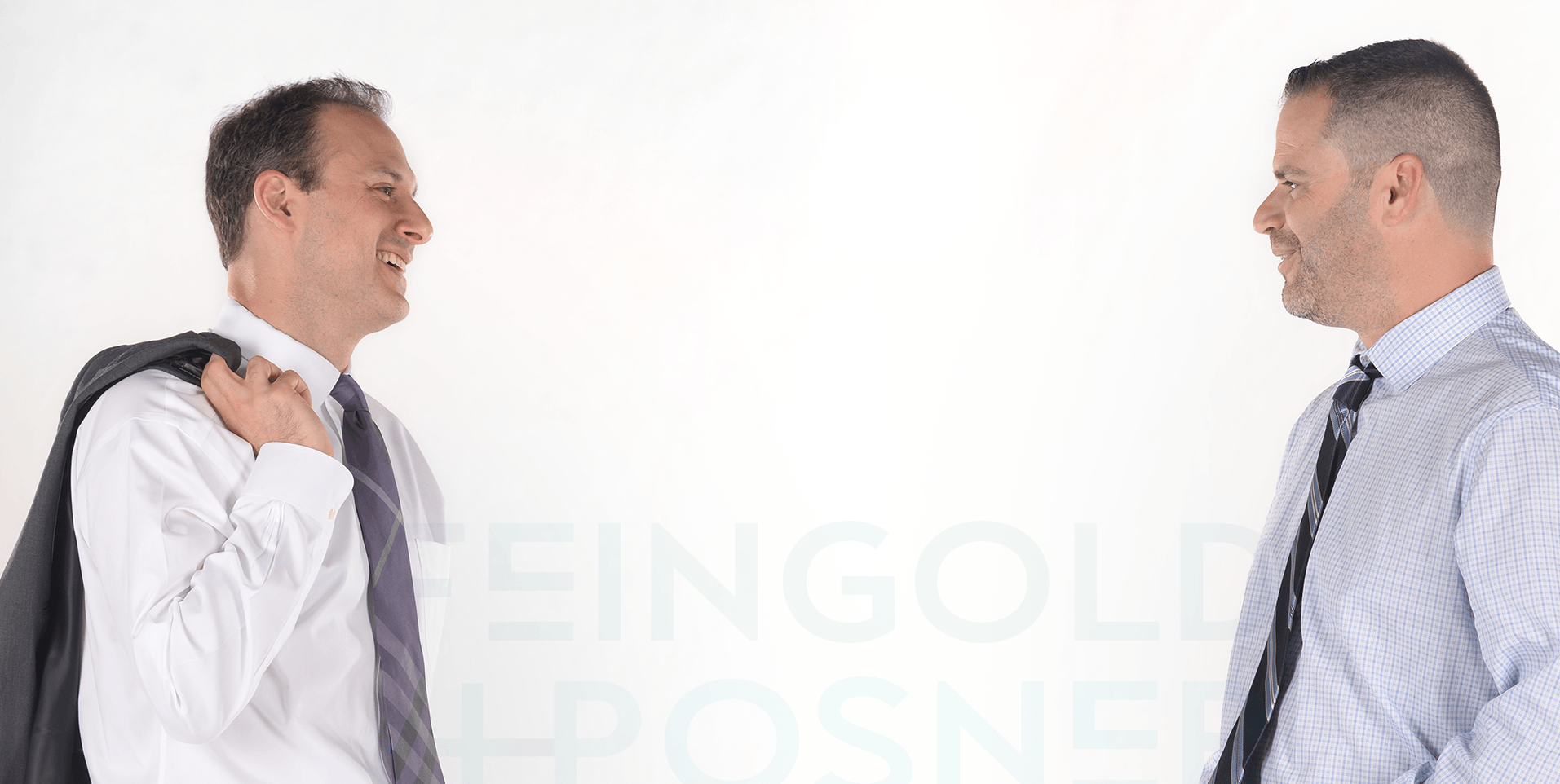Road Hazards and Motorcycle Accidents: Holding Responsible Parties Accountable
October 26, 2023

For motorcyclists, the thrill of the open road is unparalleled. However, they also face unique risks compared to other motor vehicles, especially when confronted with road hazards. From uneven pavements to unexpected debris, these hazards can turn deadly for two-wheelers. Feingold & Posner, P.A. is committed to guiding motorcyclists through the intricacies of holding responsible parties accountable when these dangers lead to accidents.
The Unique Vulnerability of Motorcyclists
Motorcycles, unlike cars or trucks, have an inherent instability due to their two-wheel design. While this gives riders unmatched agility, it also makes them more susceptible to accidents caused by road hazards. A small pothole, which might be a minor inconvenience for a car, can prove catastrophic for a motorcyclist.
Common Road Hazards for Motorcyclists
Motorcyclists face a unique set of challenges when navigating roads. The absence of a protective metal frame, smaller size and visibility, and the need for balance make motorcyclists especially vulnerable to specific road hazards that may be inconsequential to other vehicles.
Here are some common road hazards that motorcyclists frequently encounter:
- Potholes: Hitting a deep pothole can jolt a motorcyclist off the seat or lead to a loss of control.
- Gravel on Pavement: Especially common on curves or at intersections, gravel can cause a bike to slide out, leading to a potential accident.
- Wet Roads: Rain, puddles, or even morning dew can make roads slippery. Motorcyclists often struggle with reduced tire grip on wet surfaces.
- Oil and Fluid Spills: Oil, antifreeze, and other vehicle fluids can be especially slippery. These are commonly found in the middle of a lane at intersections where cars often stop.
- Railroad Tracks: Tracks, especially when they’re wet, can be slippery. If a motorcyclist doesn’t approach them at the right angle, the tires can get caught in the track groove.
- Edge Breaks: These occur when two traffic lanes are of different heights. For motorcyclists, this can cause a jarring effect and potential loss of control.
- Leaves: Wet or dry leaves on the road can be slippery and mask other hazards like potholes or markings.
- Animal Crossings: Small animals darting across roads can cause motorcyclists to swerve suddenly, potentially leading to accidents.
- Uneven Roads or Pavements: Surfaces that are bumpy, undergoing repair, or transitioning from one type of pavement to another can destabilize a motorcycle.
- Road Debris: Items like branches, tire treads, or litter might not be a significant threat to cars but can be dangerous for motorcyclists.
- Expansion Joints and Metal Plates: Often found on bridges or in construction zones, these can become particularly slippery when wet.
- Painted Surfaces: Painted road markings, especially when fresh, can become incredibly slick in the rain.
- Open Bridges: The metal grates on some open bridges can reduce traction and be quite challenging for motorcyclists to navigate.
- Temperature Fluctuations: Sudden temperature changes, especially in regions prone to frost, can result in slick spots on the road.
- Blind Corners: Particularly in hilly or winding areas, motorcyclists can face unexpected obstacles or conditions as they navigate a blind turn.
Safety Tips for Motorcyclists
Motorcycling offers a sense of freedom and exhilaration that few other modes of transportation can match. However, the very factors that make it so exhilarating also expose motorcyclists to greater risks on the road. Here are essential safety tips every motorcyclist should follow to ensure their rides are both enjoyable and safe:
Wear Proper Gear
- Helmet: Always wear a helmet that meets safety standards. It’s your primary defense against head injuries.
- Protective Clothing: Wear abrasion-resistant materials like leather or reinforced jackets and pants. These can protect against road rash.
- Gloves: Protect your hands with sturdy gloves that provide a good grip and shield against the elements.
- Boots: High-ankle boots can protect against ankle injuries and provide better traction when stopping.
- Eye Protection: Wear goggles or visors to prevent wind, debris, and insects from impairing your vision.
Stay Visible
- Wear bright or reflective clothing to stand out, especially at night.
- Keep your headlights on, even during the day.
- Use signals for every turn or lane change.
Defensive Riding
- Anticipate potential hazards, such as cars changing lanes without signaling.
- Maintain a safe following distance, giving yourself time to react.
- Be cautious at intersections, a common place for motorcycle accidents.
Avoid Blind Spots
Stay out of other vehicles’ blind spots, especially larger vehicles like trucks.
Maintain Your Bike
- Regularly check your motorcycle’s brakes, tires, lights, horn, and fluids.
- Ensure the tires are correctly inflated and the treads are in good condition.
Ride According to Conditions
- Slow down in wet, icy, or foggy conditions.
- Avoid riding in extreme weather, if possible.
Know Your Limits
- Avoid riding when fatigued, under the influence of alcohol, or in emotionally heightened states.
- Don’t push beyond your riding skills, especially in challenging conditions or unfamiliar terrains.
Get Trained and Licensed
- Take formal motorcycle training courses to develop and maintain your riding skills.
- Always ride with a valid motorcycle license.
Avoid Distractions
- Don’t use phones or other gadgets while riding.
- Avoid adjusting music players or navigation devices on the go.
Plan Your Ride
- Plan your route ahead of time, especially for longer trips.
- Take regular breaks to avoid fatigue on long rides.
Who’s Responsible?
When road hazards lead to motorcycle accidents, determining liability can be complex:
- Local or State Authorities: In many cases, local or state government bodies responsible for maintaining road conditions can be held liable for negligence.
- Construction Companies: If roadwork or construction leads to hazardous conditions, the companies involved might be accountable.
- Other Motorists: In instances where debris falls from a vehicle or a spillage occurs due to a car’s malfunction, the vehicle’s driver or owner can be held responsible.
- Motorcycle Manufacturer: In some cases, the motorcycle’s design might exacerbate the impact of the hazard. If a design flaw contributes to the accident, the manufacturer could be held liable.
Building a Strong Case
For motorcyclists seeking compensation, establishing negligence is crucial. Here’s what Feingold & Posner, P.A. recommends:
- Gather Evidence: Document the accident scene. Photograph the hazard, any damages to the motorcycle, and injuries sustained.
- Seek Witnesses: Bystanders or other motorists can provide valuable testimony.
- Record Details: Note the time, date, and specific location. Document weather conditions, lighting, and any other factors that might have contributed.
- Medical Reports: Seek immediate medical attention and retain all medical reports and bills.
- Expert Testimony: In some cases, experts like accident reconstructionists can help establish the hazard’s role in the crash.
Compensation and Recovery
Motorcyclists injured due to road hazards might be entitled to various compensations:
- Medical Bills: For immediate and future medical treatments.
- Lost Wages: If the injury prevents the victim from working.
- Pain and Suffering: For the physical and emotional trauma endured.
- Property Damage: Repair or replacement of the motorcycle and gear.
Feingold & Posner, P.A.: Advocates for Motorcyclists
At Feingold & Posner, P.A., we understand the unique challenges motorcyclists face. Our dedicated team:
- Listens Actively: Every case is unique, and we ensure your story is heard.
- Investigates Thoroughly: No stone is left unturned as we gather evidence.
- Fights Vigorously: Whether in negotiations or in court, we strive to ensure our clients receive the justice and compensation they deserve.
Contact an Experienced Motorcycle Accident Lawyer at Feingold & Posner, P.A for a Free Consultation About Your Case Today
The open road, while inviting, hides numerous hazards for motorcyclists. When these hazards result in accidents, victims deserve representation that understands their unique challenges. Feingold & Posner, P.A. stands ready to guide motorcyclists through the legal maze, ensuring those responsible are held accountable.

★
★
★
★
★
“These lawyers are not only very efficient, but caring as well. I would not hesitate to refer them to anyone.”
MATTHEW T. / FORMER CLIENT



